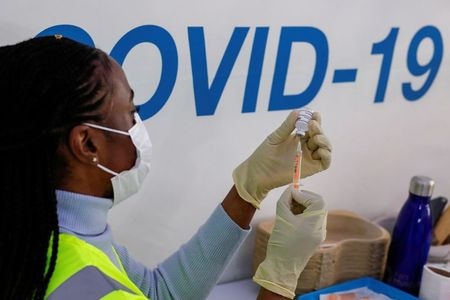UK hails one year anniversary for homegrown AstraZeneca vaccine

The UK’s homegrown Oxford University and AstraZeneca vaccine has been distributed among Brits for exactly one year today.
Brian Pinker, 82, was the first person to receive the Covid-19 vaccine outside of clinical trials at Oxford University Hospital at 7.30am, on this day in 2021.
It brought a sigh of relief for many Brits, who had been awaiting a coronavirus vaccine for some time.
The vaccine has now been distributed around 50m times in the UK, and now acts as another string in the country’s bow for booster vaccinations.
With the country’s booster programme in full swing a wave of the Omicron variant, the health secretary hailed Oxford and AstraZeneca’s joint vaccine on its “absolutely crucial role” in the fight against the pandemic.
“I’m extremely proud of our world-leading researchers and scientists who are responsible for developing some of the most effective vaccines and treatments during the pandemic and the NHS for the incredible roll out,” health secretary Sajid Javid said.
“The UK’s vaccination and booster programme is world leading but with the rapid spread of the Omicron variant, it is more important than ever that people come forward for their vaccines and booster to top up your immunity this winter and protect the progress we have made.”
However, the head of the Joint Committee on Vaccination and Immunisation told Sky News this morning that it is not “affordable, sustainable or deliverable” to give everyone in the world booster shots every six months.
Professor Sir Andrew Pollard explained that “the whole idea of regular four doses globally is just not sensible”, with less than 10 per cent of people in some low income countries still in search for their first dose.
“For the vast majority of people who are vaccinated, the risk is extremely low of severe Covid for those who have had three doses,” he added
Pollard continued that a programme that targets the ‘most vulnerable’ is “likely”, but what that will look like is not yet known.
“Does that mean that we need updated vaccines each year like we do with flu, [or] we just use the same vaccines for boosters? We need more data to make those decisions.”